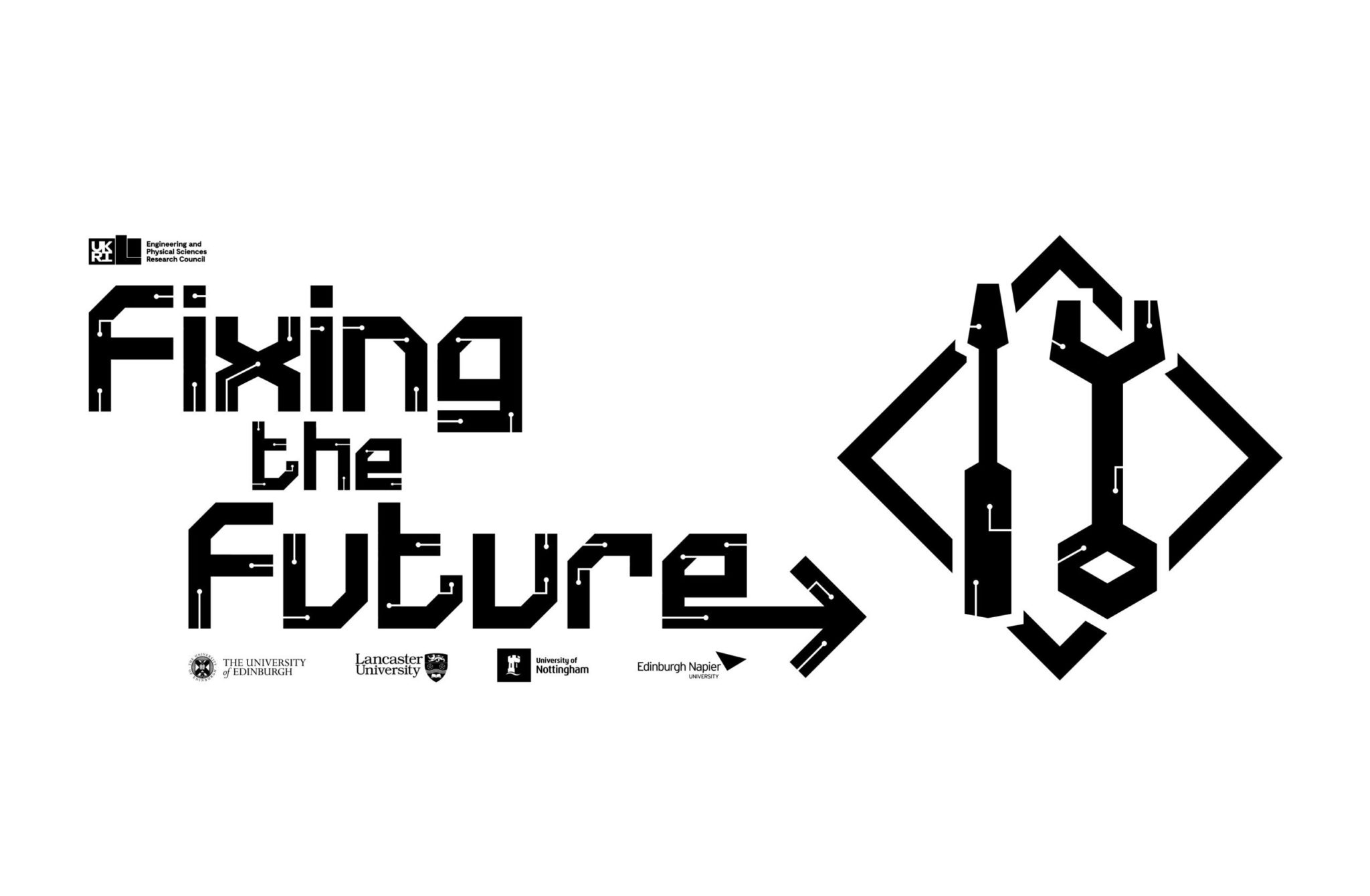The team are part of the Fixing the Future: Internet of Things and the Right to Repair project, funded by the Engineering and Physical Sciences Research Council

Dr. Lachlan Urquhart is a Senior Lecturer in Technology Law and Human-Computer Interaction at the School of Law, University of Edinburgh. He founded and directs the Regulation and Design Lab, hosted in the Institute for Design Informatics. He is Principal Investigator on the UK EPSRC £1.2m Fixing the Future on IoT and Right to Repair project and has been investigator on projects totalling £17m. He has published over 60 papers across IT law, computer ethics and HCI venues on topics such as privacy, cybersecurity, AI and IoT regulation, and the role of design research.
Dr. Susan Lechelt is a Lecturer at the Institute for Design Informatics, University of Edinburgh. She organised the 2020 DIS workshop on “Designing for the End of Life of IoT Objects” and since then, has led a range of research to inform the design of more sustainable IoT devices. This has included investigating the barriers to IoT circularity from the perspective of device owners, supervising a PhD on IoT and the sharing economy, and working as Co-I on the EPSRC Fixing the Future project. Beyond this, she brings to the workshop expertise in engaging wide audiences in exploring and discussing the implications of IoT through hands-on activities – from creative professionals to schoolchildren and wider public audiences.
Dr. Neelima Sailaja is a Transitional Assistant Professor at the Horizon Digital Economy Hub at the University of Nottingham’s School of Computer Science. She is an interdisciplinary researcher developing methods for Responsible Innovation in cutting edge computing (AI and IoT) with a focus on Sustainability, Social Acceptability and Human Data Interaction. Neelima leads Nottingham’s work package on the £1.2m EPSRC Fixing the Future project, is Co-I on the TAS InterNet Zero project and was CI on the PETRAS New Forms of Public Value at the Edge project. She is an invited member: of the BBC’s Public Service Data Ecosystem Working Group & Advisory Board; leads the School of Computer Science’s Sustainability Committee at the University of Nottingham and has a prominent presence at several stakeholder events around Repair in the U.K.
Professor Melissa Terras is the Professor of Digital Cultural Heritage at the University of Edinburgh’s Design Informatics in Edinburgh College of Art. She is acting Director of the AHRC funded Creative Arts cluster, Creative Informatics and sits on the Board of Directors of Transkribus. She has a background in Classical Art History and English Literature (MA, University of Glasgow), and Computing Science (MSc IT with distinction in Software and Systems, University of Glasgow), her doctorate (Engineering, University of Oxford). She has published widely, with numerous books in the field of Digital Humanities.
Anna Marie Rezk is a third year PhD candidate in Design Informatics at the University of Edinburgh. She is a research assistant on the EPSRC Fixing the Future project and focused on the design and production of the Right to Repair cards. She brings expertise in collaborative design and user studies using design probes from her PhD research on user-centric design in personalised media.
Dr Teresa Castle-Green is an inter-disciplinary researcher working on unpacking the socio-technical complexities of design and repair of IoT. She is the HDI Researcher at the University of Nottingham on the EPSRC Fixing the Future project engaging with UK repair communities to investigate ways in which HCI/HDI approaches can support the growing culture of community-based repair.
Dr Dimitrios Darzentas is a lecturer at the School of Computing, Engineering, and the Built Environment (SCEBE) at Edinburgh Napier University and formerly a multidisciplinary Research Fellow in the Mixed Reality Lab of the University of Nottingham. His work is situated at an intersection between Human-Computer Interaction and Design with a broad scope including Mixed Reality Technologies, Experience Design, Digital Storytelling and Cultural Heritage, Service Design, Playful Interactions, Wellbeing, Sustainability and Political Engagement, among others.
Dr Namrata Primlani is a Research Fellow at the School of Computing, Engineering, and the Built Environment (SCEBE) at Edinburgh Napier University, and previously a Marie Curie and Mozilla Research Fellow working on design aspects of the Internet of Things. Her current research focuses on the engaging dissemination of the multidisciplinary knowledge created by the Fixing the Future project to the public and wider stakeholders with novel design methods.
Dr Violet Owen has a BA (Hons) in Graphic Information Design from the University of Westminster, an MA in Education from Manchester Metropolitan University and a QTS in Secondary Education from the Reading University. Violet has worked in the secondary and further education sector since 2012 and is an experienced design education practitioner. Her interests are evaluation, community engagement and policy design.
Dr Michael Stead is Lecturer in Sustainable Design Futures at Lancaster University. His interdisciplinary research interrogates the environmental and social impacts data-driven technologies pose for sustainability goals like Net Zero 2050 and the Circular Economy. Michael leads Lancaster’s work package on the EPSRC Fixing the Future project. He has published over 25 peer reviewed Design/HCI outputs and lead-authored PETRAS’ Little Book of Sustainability for the IoT.